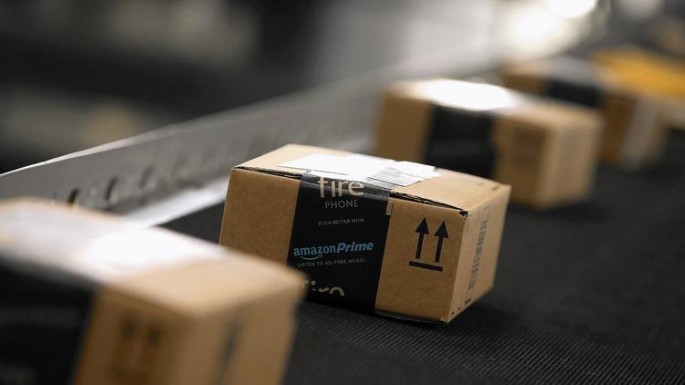Four former drivers of Amazon's Prime Now are suing the retailer for cheating them of their wages while overusing them, and then turning back to treat them as independent contractors rather than employees.
One of these is Taree Truong who wore a uniform with Amazon's logo on it, and had to sign into an Amazon's tracking device before being ordered by Amazon dispatchers on where to take products for deliveries to customers who ordered for them.
On one of such errands, it was a rush hour and Truong had to drive from Amazon's warehouse in Irving to Lake Forest in Orange County of California, and then move on to Mission Viejo before coming back to Irvine from where she would have to leave for Newport Beach - all within two hours.
"Everything we did was under their control," said Truong. "They're telling us where we need to go, how to deliver these packages to customers and how to interact with those customers when we're there."
Scoobeez is the contracted courier company for Amazon, but drivers for Amazon Prime Now including Truong are not regarded as employees of both companies; they are considered independent contractors and therefore not qualified for overtime pay, mileage reimbursements, workers' compensations or other perks enjoyed by employees under federal and state laws.
And now Truong and other three former drivers for Amazon's Prime Now are suing Amazon, saying the retailer boasts of speed and affordability only at the expense of workers who are cheated to make things work.
Meanwhile, Amazon has increased its Prime Now delivery service to over 15 US states within one year, and the retailer is delivering products its used to deliver in two days in less than two hours. Workers are alleging that the acclaimed efficiency of the retailer brutally falls on them.
Amazon is not responding to queries concerning the issue with a spokeswoman saying the company does not speak on pending litigation, and Scoobeez also would not respond to requests for comment.
This is not the first time US companies and startups are facing litigations in court over the fact that they treat employees like independent contractors, while still overworking them and seemingly cheating them at every corner to curry marketing favor with customers.
The four litigants in the ongoing case against Amazon say they got paid $11 per hour, but when the expenses of gas, tolls, and maintenance are factored into the pay, then they are actually receiving less than $9 which is the minimum wage for California.
Yet they are constantly monitored and tracked while on the job, ordering that workers cover a whole region in two hours. "They knew exactly where we were every single minute," said Cynthia Miller, one of the plaintiffs, who also delivered packages in Orange County. "We were told when to take a lunch, when we get there, when we get to leave."
"They don't factor in the time of day, they don't factor in the different locations," Truong said. "There's just no way you can get on the 405 at that time of day and make it."
The distinction between whether a worker is an employee or an independent contractor has been blurred over time and quite confusing to employers. However, the US Department of Labor this year released a memo to clarify the issue.
The Labor Department says a worker is an independent contractor if he has several clients and maintains employees of his own; but a worker is an employee if he works only for one company who directs every aspect of his work.
"These are people who are in no way, shape or form in business for themselves," said Beth Ross, the attorney representing the four disgruntled workers. "This is not debatable. These are people who fill out a job application, get hired and are given a work schedule."
Ross won $227.5 million in settlement from FedEx early this year in a similar case when delivery drivers in California went to court over being regarded as independent contractors.



























